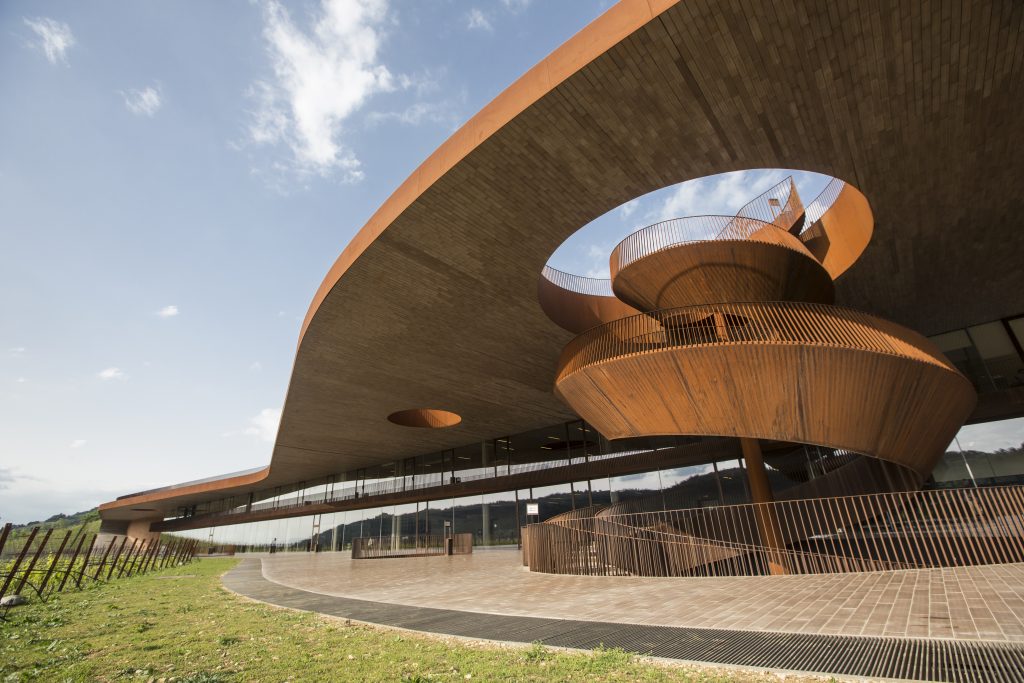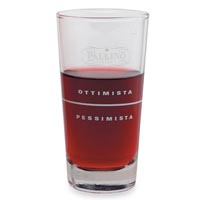Four Women-Run Italian Wine Brands and Their Signature Products
Determined women drive some of the best wineries across the country

Be it the groundbreaking 26th generation of a family business or a mother-daughter duo looking toward the future, women winemakers compose only a fraction of the Italian wine industry. One of the world’s most prestigious winemaking nations, Italy‘s beautiful vineyards and historic wineries produce liquid of great acclaim. That said, it’s also a destination where natural and organic wines are beginning to emerge. Though the following four institutions offer some (or all) of that, they also affirm what the wine world looks like under the direction of women: successful.

Castello di Volpaia and Prelius Maremma Toscana
Mother-daughter duo Giovanna Stianti and Federica Mascheroni Stianti run their two family estates with power and enthusiasm. There is a rich history behind Castello di Volpaia, a winery and village dating back to 1172 (one of the best-preserved walled 12th-century villages in Italy) that sits at the Florence-Siena border. The interiors of its ancient houses, underground passages, and deconsecrated churches have been discreetly converted into wine cellars connected by an underground “wineduct.” Giovanna was passed Castello di Volpaia by her father as a wedding present. When she married her husband, Carlo Mascheroni, he took the Stianti surname so that it would carry on further. Giovanna has paved the way for many women in the industry—and this lineage and the spectacular history behind each bottle is part of what makes it all so precious.

Daughter Frederica didn’t always see herself getting into the family business. At age 19, she pursued a career in art conservation and completed a degree in technical art restoration as well as a master’s degree in restoration and conservation of artistic heritage. When she moved to Florence for her conservatorship in painting, she was able to help her mom with the Volpaia estate, due to its proximity. 12 years ago, Frederica joined full time to oversee the family’s expansion.

Purchased by the family in 2007, Prelius Maremma Toscana is a coastal winery accompanied by a newly constructed estate that looks upon the vineyards and its surrounding cork, olive, and orange trees. It sits in the hilly terrain of Tuscany’s Maremma region, above an ancient coastal lake named Prelius. The organically farmed vineyard, by the same name, is the first venture outside of the Chianti Classico territory for the Stianti Mascheroni family. While Volpaia remains her mother’s territory, the two come together to run the family business together, often butting heads but finding a solid middle ground rooted in their passion for crafting wine with integrity.

As a starting point into the family’s portfolio, the Castello di Volpaia Chianti Classico 2017 is a beautiful bottle to open for a special dinner or an average night alike. The medium-bodied red wine, made from 100% Sangiovese grapes, boasts notes of blackberry, violet, and new leather. At the same time, flavors of ripe plum, nutmeg, and licorice linger on the tongue as well as rounded tannins, which create a polished finish.

Tenuta Sette Cieli
Nestled between Bolgheri and Castagneto Carducci, in the heart of Tuscany and at 400 meters above sea level, Tenuta Sette Cieli sits among the clouds (it’s aptly named “The Estate of the Seven Skies”). Committed to respecting nature and cultivating vines with the purest expression of the terroir, while employing sustainable and organic practices, the 36-year-old, Tuscan-born Elena Pozzolini is another groundbreaking winemaker and CEO.
Pozzolini graduated from the University of Pisa with a degree in viticulture and enology. Combining these two disciplines, she developed an intuitive winemaking process—drawn from her own extensive studies on vineyard diseases—that intertwines her routine with the growing process of the grapes. She continually tends to the vines and watches how they react to environmental changes.

She recounts an unusually wet season where the grapes were suffering from waterlogging. Her solution was to plant barley between the rows to absorb the excess moisture. Because of Pozzolini’s completely natural style of winemaking, the vines demand a creative mind to address their specific needs. Due to increased seasonal shifts from climate change, the winery has even altered their pruning cycle for the vines. They do not use commercial pesticides, nor do they allow spraying of any kind. Integrated pest control fosters harmony and balance in the vineyards as they battle against wild boars and birds. Further, all operations in the vineyards are done by hand. Under her leadership, she formed an all-women team of workers who are responsible for their wines. This was to combat the hindrances at her own beginnings, where she had to work internationally in California, Argentina, and Australia. She began her career in Argentina because of the glass ceiling preventing her from finding a job in Italy.
The Tenuta Sette Cieli Indaco 2014 epitomizes Elena Pozzolini’s wine-making. Composed of Malbec, Cabernet, and Merlot grapes, this wine coats the tongue with notes of black currant, bilberry, and mint as chewy tannins create a velvet finish that encourages one to pour a second, third, and even fourth glass.

Marchesi Antinori
The 26th generation of the Antinori Family entered the wine world with a reckoning. Their family had been committed to the art of winemaking for over six centuries—since 1385 when Giovanni di Piero Antinori became a member of the “Arte Fiorentina dei Vinattieri,” the Florentine Winemakers’ Guild. Throughout its history, the Antinoris managed their business directly, making innovative and sometimes bold decisions. They’re also one of the biggest wine companies in Italy, spanning over 11 estates and vineyards. Their innovations played a large part in the “Super-Tuscan” revolution of the 1970s. Now, three sisters—Albiera, Allegra, and Alessia—run the empire. Though Albiera carries the title of president, she is the first to clarify that the duties are split between all three Antinori sisters, with each finding a niche to pursue individual passions.

Alessia oversees the Antinori Art Project, where she commissions contemporary artists—including Sam Falls and Nicholas Party—to create site-specific works in conversation with the estates. Albiera’s passion for architecture prompted her to work closely on the construction and opening of their new Chianti Classico winery, museum, and headquarters, which is open to the public. Allegra looks after their restaurant ventures, including Cantinetta Antinori in Florence (which has a NYC pop-up, with a three-course prix-fixe menu and wine pairing for $95, from 25-28 February, at Tutto il Giorno Tribeca).
From the brand’s illustrious roster of wines, the richly-layered Marchese Antinori Chianti Classico Riserva 2016 tantalizes. The aromas of cranberry, pomegranate, and oak-driven spice give way to a sophisticated palate of black cherry, plum, vanilla, star anise, and a hint of coconut.
Hero image of Antinori sisters courtesy of Marchesi Antinori












